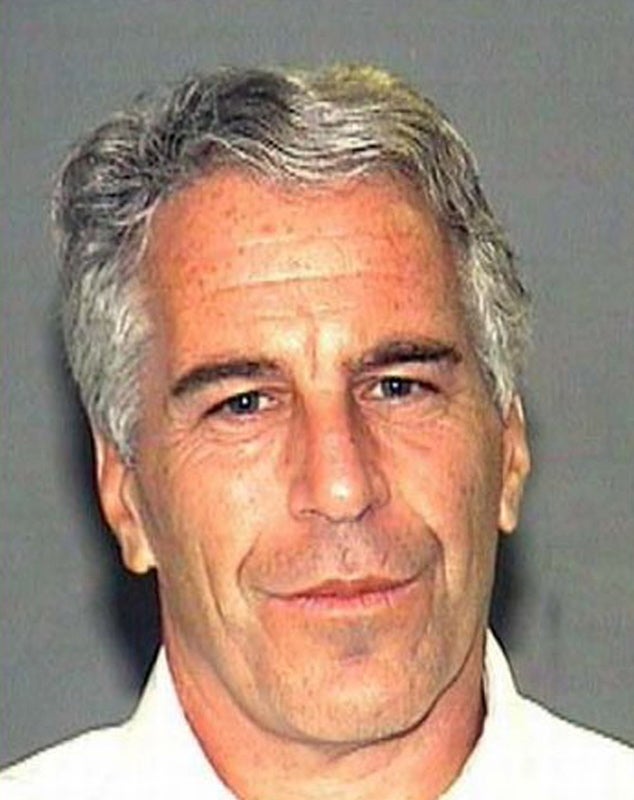Jeffrey Epstein: How did the disgraced paedophile financier die?
Epstein died in 2019 inside the Metropolitan Correctional Center in New York - five years later and secret files about his associates have been made public
Paedophile billionaire Jeffrey Epstein is dead and British socialite Ghislaine Maxwell is serving a 20-year jail sentence but the fallout from their crimes continues.
More than four years after the disgraced financier died by suicide in his prison cell, a New York District judge announced the unsealing of a trove of documents revealing the names of more than 150 of his associates.
And now the legal files, part of a long-running defamation lawsuit brought by Epstein victim Virginia Giuffre against his former fixer and convicted child trafficker Maxwell in 2015, have been made public.

The case was settled in 2017, but Judge Loretta Preska later issued an order to release materials connected to the case in December 2023. The documents identify individuals whose names had been previously redacted, including “alleged victims, people not accused of wrongdoing…and absent third parties.”
Bill Clinton and Prince Andrew are among the high-profile figures named in the documents, the first tranche of which was made public in January 2024.
Since Maxwell’s conviction in December 2021, there have also been developments in a parallel case, another civil lawsuit from Ms Giuffre claiming that Prince Andrew had sex with her knowing she was underage after she was trafficked by Epstein and Maxwell.
In January 2022, a federal judge allowed the case, where Andrew denied wrongdoing to go to trial but the accused eventually elected to settle with Ms Guiffre out of court, despite vehemently protesting his innocence.
Looming behind all this, however, is a shocking event from 2019 that has left few who follow the case closely with closure as Epstein died in prison before he could be put on trial for trafficking charges of his own.
As the story continues to unfold, here’s what you need to know about the circumstances of his death.

How did Jeffrey Epstein die?
Epstein died on 10 August inside the Metropolitan Correctional Center in New York, where he was confined ahead of a pending trial for allegedly recruiting dozens of teen girls to engage in sexual acts with him and his friends. He was facing up to 45 years in prison if he was convicted.
Epstein was found with a noose made out of a bedsheet and the authorities ruled the death a suicide.
Why is there scepticism about Epstein’s death?
Since the 66-year-old’s death, speculation has run rampant that Epstein did not kill himself, though authorities ranging from the medical examiner to former US attorney general Bill Barr have publicly declared that Epstein did take his own life.
But rumours the disgraced billionaire had been assassinated began almost immediately.
One of his lawyers, Reid Weingarten, said he had met with Epstein shortly before he died and remarked: “We did not see a despairing, despondent, suicidal person”. The attorney argued instead that Epstein’s body, found with broken bones in his neck, which can also occur during strangulation, showed evidence “far more consistent with assault”.
Then-president Donald Trump piled in as well, retweeting a conspiracy theory tying the death to Bill Clinton, who had flown on Epstein’s private jet dubbed the “Lolita Express”, as had numerous other figures in the worlds of politics and entertainment – including Mr Trump himself.
The death also set off fevered speculation online, where the story overlapped with the themes of the increasingly influential QAnon conspiracy movement, which believes a cabal of paedophilic Democratic and media elites are conspiring to harm children.
Mr Barr, however, said he personally reviewed security footage of Epstein’s cell and said no one else was present during the death.

"I can understand people who immediately, whose minds went to sort of the worst-case scenario because it was a perfect storm of screw-ups," he told the Associated Press in 2019.
There were other factors that raised eyebrows, including Epstein’s repeated comments to prison psychologists he was mentally sound and not contemplating suicide.
“Why would you ever think I would be suicidal? I am not suicidal and I would never be,” Epstein told one prison official, adding that as a Jew, it was against his religion.
“I have no interest in killing myself,” Epstein declared on another occasion, saying he was a “coward” who “would not do that to myself”, according to Bureau of Prisons documents reviewed by The New York Times.
What’s more, even after an apparent suicide attempt in July and growing concern from prison psychologists he would try again, the two guards set to monitor him have admitted to lapses, including lying on documents about whether they had checked his cell the night of his death.
What did the investigation into Epstein’s death find?
In June 2023, the Bureau of Prisons and Department of Justice released a scathing report of their investigation into Epstein’s death.
The report found that multiple prison staff members failed to check on the disgraced financier in the hours leading up to his death – despite him being on suicide watch. Under Bureau of Prison (BOP) policy, staff are required to check on all inmates in solitary confinement at least once every 30 minutes.
In a clear violation of this policy, no checks were made for almost eight hours from around 10.40pm on 9 August until around 6.30am on 10 August – when the prolific sex offender was found dead.
Staff at the Manhattan jail also failed to assign Epstein a fellow inmate in his cell and left him with access to additional bed linen which he used to kill himself, the report finds.
These failings came even after Epstein was believed to have attempted suicide on 23 July – about two weeks before he died.
“The OIG’s investigation and review identified numerous and serious failures by MCC New York staff, including multiple violations of MCC New York and BOP policies and procedures,” the report states.
“The OIG found that MCC New York staff failed on August 9 to carry out the Psychology Department’s directive that Epstein be assigned a cellmate, and that an MCC New York supervisor allowed Epstein to make an unmonitored telephone call the evening before his death.
“Additionally, we found that staff failed to undertake required measures designed to make sure that Epstein and other SHU inmates were accounted for and safe, such as conducting inmate counts and 30-minute rounds, searching inmate cells, and ensuring adequate supervision of the SHU and the functionality of the video camera surveillance system.”

The damning report states that a “combination of negligence, misconduct, and outright job performance failures” all contributed to an environment where “one of the BOP’s most notorious inmates was provided with the opportunity to take his own life”.
Despite the damning list of failures, the watchdog concluded that there was no evidence to contradict the FBI’s finding that there was no crime involved in his death.
“We did not find, for example, evidence that anyone was present in the SHU area where Epstein was housed during the relevant timeframe other than the inmates who were locked in their assigned cells,” the report states.
The report adds: “All staff members who were interviewed by the OIG said they did not know of any information suggesting that Epstein’s cause of death was something other than suicide.
“Likewise, none of the interviewed inmates provided any credible information that Epstein’s cause of death was something other than suicide.”
Autopsy findings were also consistent with suicide, the report said.
It is unclear when Epstein was last checked on or when his cell was last searched. The report reveals that prison staff not only violated policy by failing to carry out the required checks but also falsified documents to appear as though more checks had been carried out.
Two officers were later charged with falsifying BOP records but the charges were later dropped. A judge later approved a deal that would see the two guards who failed to monitor Epstein’s cell avoid jail time and instead get community service.

